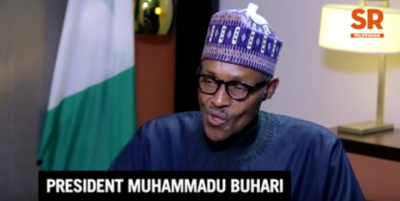
After being sworn-in as Nigeria’s President on May 29, President Muhammadu Buhari inherited not only a deeply-divided country but one that faces a highly uncertain economic future.
Oil, on which Nigeria’s economy depends for the lion’s share of its revenue and foreign exchange earning, has decreased by over seventy percent in price since July 2014.
Available data indicate that the price of oil fell from a high of US$ 116 per barrel in June, 2014 to $33 per barrel in January, 2016, representing a decline of almost 50 percent.
The Naira has also lost about 20 percent of its value since October 2014. Earlier in January, it crashed to as low as N320 to the dollar on the parallel market.
The grim picture of the economy was laid bare by Vice-President, Prof Yemi Osinbajo, last year in Abuja, where he stated that Nigeria’s economy ‘is perhaps in its worst moment in history’.
While Nigeria may have surged past South Africa to become the continent’s biggest economy last year, however that growth has slowed as not less than 110 million Nigerians are feeling the pangs of poverty, with $60billion debt being inherited by this administration just as 21 per cent of 2015 budget had been spent on servicing debts.
The International Monetary Fund (IMF) estimates that economic growth will slow to 4.8 per cent this year, down from 6.1 per cent in 2014, and the Naira is down 17 per cent against the dollar.
A report by the National Bureau of Statistics (NBS) estimates that the final figure of GDP’s growth for the year 2015 is +2.97 per cent only.
Inflation is on the rise, and foreign reserves are at a historic low, largely due to the decline in oil and gas prices, which provide nearly 70 per cent of government income.
The steep decline in oil prices and fall in exchange rates have posed immediate challenges for foreign reserves, fiscal budgets and economic growth, while the obvious solutions such as export diversification, industrialisation and economic transformation are long-term challenges.
However, as the country is struggling to adapt to living in new conditions of cheap crude oil, of pressing concern to many stakeholders in Nigeria and beyond is that when it comes to economics, a field that is intelligible only to the initiated, the President is largely inexperienced, and has not selected cabinet members with strong economic and business backgrounds.
As Nobel laureate Wole Soyinka summarised, “I think, like me, he’s an economic illiterate”, while speaking to Bloomberg TV. While President Buhari inherited the sobriquet “Baba Go-Slow and Steady”, his unhurried style in addressing the issue of the economy has many potential downsides, according to many industry watchers.
His reform agenda appears to be fast sauntering out of the gates, according to the Lagos-based civil society organisation, Buharimeter.
Although most Nigerians have hailed Buhari’s choice of Yemi Osinbajo as his running mate as part of the election success, other commentators have lamented that the new finance minister, an accountant who is credited with cleaning up the books of one of the nation’s smaller states, is poorly qualified for the job.
Her counterpart in the investment ministry is a respected businessman, but many say he may lack the clout to stand up to a president with socialist leanings.
Many observers have also expressed worry that the nation’s economic policy has been adrift since President Buhari came to power, and investors, particularly foreign ones, are complaining about the Central Bank of Nigeria (CBN)’s use of trade controls and import restrictions all pointers that the present administration is ill- equipped to respond to the gargantuan economic challenges at hand.
For instance, many experts have decried the lack of an Economic Management Team in this administration. According to a Chartered Accountant, Leke Fakayode, “If he is able to put a credible team in place, people would not judge him as an individual but the collective capabilities of the team around him.
The focus would not be on one man but the team. Where the man himself has a weakness, the rest of the team can cover that; and you need to have your A-players in charge.”
While there are arguably A-players in the cabinet, few are economy-savvy. When the price of oil (on which Nigeria depends for more than 70 percent of its revenues) was soaring, tens of billions of dollars were squandered through subsidy scams, oil theft and other fraud.
These were funds that could have sustained the country through the leaner times ahead, through the well-thought out vehicles like the Excess Crude Account (ECA) and the Sovereign Wealth Fund (SWF) but are now, glaring in their absence, as the Naira tumbles and the nation’s foreign reserves are heavily depleted.
NEW TELEGRAPH
END

Be the first to comment